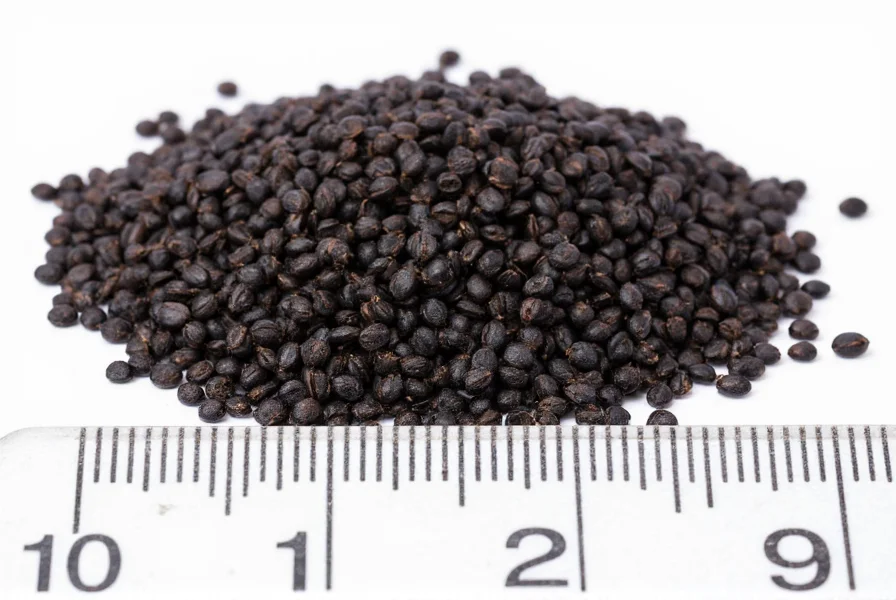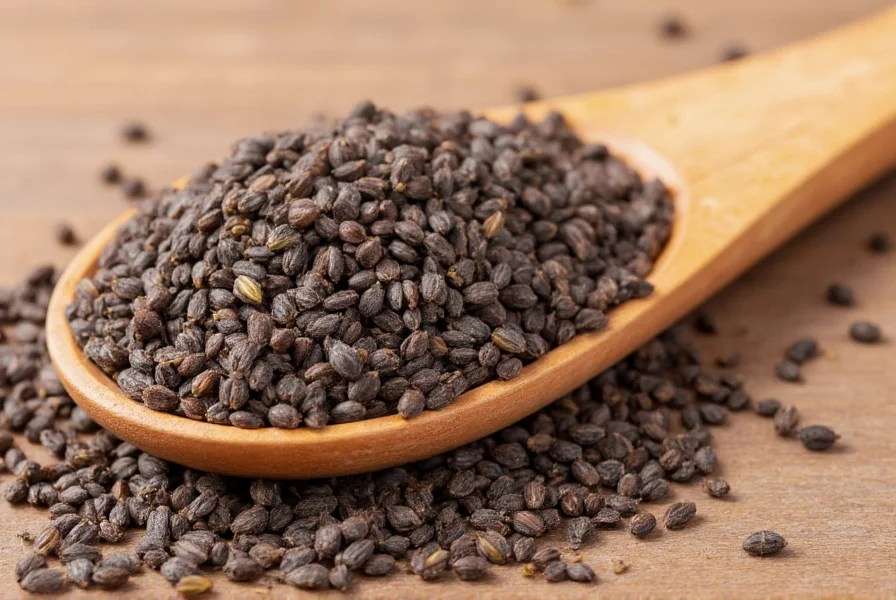Despite frequent confusion in terminology, black seed cumin (Nigella sativa) belongs to the Ranunculaceae family, while regular cumin comes from the Apiaceae family. This botanical distinction explains their different chemical compositions and traditional applications. Research on black seed cumin has increased substantially in recent decades, with over 800 scientific studies published in the last five years examining its potential effects on various physiological systems.

Historical Context and Traditional Applications
Archaeological evidence shows black seed cumin use dating back to ancient Egyptian times, with seeds found in Tutankhamun's tomb. Traditional medical systems including Unani, Ayurveda, and Islamic medicine have documented its use for respiratory support, digestive health, and topical applications. The Prophet Muhammad reportedly described it as "a cure for every disease except death," contributing to its prominence in Middle Eastern traditional medicine.
Scientific Composition and Active Compounds
The therapeutic potential of black seed cumin primarily stems from thymoquinone (TQ), which constitutes 30-48% of the essential oil. Additional bioactive compounds include:
- Thymohydroquinone (THQ)
- Dithymoquinone (DTQ)
- Nigellone
- Fatty acids (linoleic, oleic, palmitic)
- Proteins and amino acids
- Vitamins and minerals
| Compound | Percentage in Seed | Known Properties |
|---|---|---|
| Thymoquinone | 0.2-0.5% | Antioxidant, anti-inflammatory |
| Fatty Acids | 30-40% | Essential for cellular function |
| Protein | 20-25% | Building blocks for enzymes |
| Fiber | 5-8% | Digestive support |
Distinguishing Black Seed Cumin from Regular Cumin
Understanding the difference between black seed cumin and regular cumin is essential for proper usage. Many consumers mistakenly believe they're varieties of the same plant, but they're botanically unrelated:
| Characteristic | Black Seed Cumin (Nigella sativa) | Regular Cumin (Cuminum cyminum) |
|---|---|---|
| Botanical Family | Ranunculaceae | Apiaceae |
| Seed Appearance | Small, matte black, triangular | Larger, brownish-yellow, elongated |
| Primary Flavor | Earthy, slightly peppery, onion-like | Warm, spicy, distinctive aroma |
| Key Bioactive Compound | Thymoquinone | Cuminaldehyde |
| Traditional Medicinal Uses | Broad-spectrum applications | Primarily digestive support |
Current Scientific Research on Black Seed Cumin
Modern research on black seed cumin health benefits has expanded significantly, though most studies remain preclinical or involve small human trials. Key research areas include:
Immune System Modulation
Multiple studies suggest black seed cumin may support healthy immune function through modulation of cytokine production and immune cell activity. A 2022 systematic review of 15 clinical trials noted consistent evidence of immunomodulatory effects, though researchers emphasized the need for larger, longer-term human studies.
Metabolic Health Support
Research examining black seed cumin for metabolic health has shown promising results. A meta-analysis of 17 randomized controlled trials found statistically significant improvements in fasting blood glucose levels among participants consuming black seed cumin compared to control groups. The mechanism appears related to enhanced insulin sensitivity and pancreatic beta-cell function.
Respiratory Health Applications
Traditional use of black seed cumin for respiratory conditions has some scientific backing. Clinical trials have investigated its potential for supporting healthy respiratory function, with several studies reporting positive outcomes for seasonal respiratory challenges. The compound nigellone demonstrates bronchodilatory effects in laboratory studies.
Practical Applications and Usage Guidelines
Black seed cumin appears in various forms, each with different applications:
- Whole seeds: Used in cooking, particularly in Middle Eastern and South Asian cuisines
- Ground powder: Added to breads, curries, and spice blends
- Oil extract: Concentrated form used for topical and internal applications
- Capsules: Standardized supplements with measured thymoquinone content
For culinary applications, black seed cumin works well in flatbreads, pickles, and vegetable dishes. The seeds develop more complex flavor when dry-roasted before use. When incorporating black seed cumin oil into your routine, starting with small amounts (1/4 to 1/2 teaspoon daily) allows assessment of individual tolerance.

Safety Considerations and Potential Interactions
Black seed cumin is generally recognized as safe when consumed in food amounts. However, certain considerations apply:
- Pregnant women should avoid medicinal amounts due to potential uterine stimulation
- May interact with medications metabolized by CYP3A4 liver enzymes
- Discontinue use at least two weeks before scheduled surgery
- Some individuals may experience mild digestive upset initially
As with any botanical substance, consulting with a healthcare provider before using black seed cumin for specific health concerns is advisable, particularly for individuals with existing health conditions or those taking prescription medications.
Selecting Quality Black Seed Cumin Products
When choosing black seed cumin products, consider these factors to ensure quality:
- Look for products specifying Nigella sativa to avoid misidentification
- For oil products, cold-pressed extraction preserves more active compounds
- Check for thymoquinone content on supplement labels
- Fresh seeds should have a distinctive aroma and uniform black color
- Organic certification reduces exposure to pesticides
Conclusion: A Balanced Perspective on Black Seed Cumin
Black seed cumin represents a fascinating botanical with deep historical roots and growing scientific interest. While traditional uses span numerous health applications, modern research provides preliminary support for some, but not all, of these traditional claims. The distinction between black seed cumin and regular cumin remains crucial for proper understanding and usage. As research continues to evolve, maintaining a balanced perspective that acknowledges both potential benefits and limitations represents the most scientifically sound approach to this ancient botanical.
Frequently Asked Questions
What's the difference between black seed cumin and regular cumin?
Black seed cumin (Nigella sativa) belongs to the Ranunculaceae family and has small, matte black triangular seeds with a thymoquinone compound. Regular cumin (Cuminum cyminum) comes from the Apiaceae family, has larger brownish-yellow elongated seeds, and contains cuminaldehyde as its primary compound. They're botanically unrelated despite similar names.
What are the scientifically supported benefits of black seed cumin?
Research suggests black seed cumin may support immune function, metabolic health, and respiratory wellness. A meta-analysis of 17 clinical trials found improvements in fasting blood glucose levels. However, most studies are preliminary, and more large-scale human trials are needed to confirm these potential benefits.
How should I use black seed cumin for maximum benefit?
For culinary use, dry-roast whole seeds before adding to breads or dishes. When using oil, start with 1/4 to 1/2 teaspoon daily. Supplements typically provide 500-1000mg of standardized extract. Always consult with a healthcare provider before using for specific health concerns, especially if taking medications.
Is black seed cumin safe during pregnancy?
While safe in food amounts, pregnant women should avoid medicinal quantities of black seed cumin due to potential uterine stimulation effects observed in some studies. Consult with a healthcare provider before using black seed cumin products during pregnancy or breastfeeding.
How can I identify high-quality black seed cumin products?
Look for products specifying Nigella sativa, cold-pressed oil extraction methods, and thymoquinone content on supplement labels. Fresh seeds should have a uniform black color and distinctive aroma. Organic certification helps ensure reduced pesticide exposure, and reputable brands provide third-party testing information.











 浙公网安备
33010002000092号
浙公网安备
33010002000092号 浙B2-20120091-4
浙B2-20120091-4